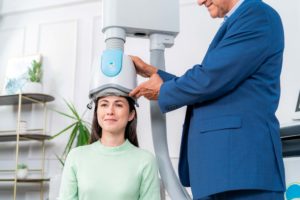Mental health is equally critical to your overall well-being as your physical health. Our society is finally realizing this and making room for people to confidently seek the treatment they need. Even so, every treatment has advantages and disadvantages that mental health professionals should review with their patients.
While medication and psychotherapy are often seen as the end-all-be-all treatments for depression and other mental health conditions, magnets are another powerful way to regulate neural activity. Transcranial magnetic stimulation (TMS) is an advanced method of relieving erratic brain activity that can cause poor mental health. Learn more about how TMS works and how it compares to other mental health treatment strategies.
Transcranial magnetic stimulation is a non-invasive treatment for debilitating mental health disorders. TMS uses magnetic fields to stimulate nerve cells in specific brain structures through a series of repetitive electromagnetic pulses. By regulating neural activity, TMS therapy can relieve patients of their symptoms and improve their well-being.
There are two primary forms of TMS—traditional and Deep TMS™. Only Deep TMS is FDA-cleared to treat other conditions besides major depressive disorder (MDD).
Several mental health conditions have been identified through empirical research as being associated with particular brain structures. For instance, MDD is linked to erratic activity in the bilateral prefrontal cortex, while obsessive-compulsive disorder (OCD) is tied to unusual activity in the anterior cingulated cortex. By carefully targeting the area in question, Deep TMS is able to treat multiple mental health conditions.

Modern medicine is a scientific marvel that has improved the quality of life of countless individuals. Take antidepressants, for example. These drugs work by keeping certain neurotransmitters active for longer periods, which can relieve symptoms of depression. Unfortunately, prescription drugs often come with a long list of side effects, and they don’t always work effectively. As a result, the price of trying to alleviate your symptoms may be overshadowed by the ones you gain.
TMS technology is an effective standalone treatment for depression, but it’s also safe to combine with medication. In fact, studies show that using TMS therapy with medication provides greater symptom relief than medication alone. Adding TMS to an existing treatment plan can also counterbalance the gradually decreasing clinical effectiveness of medication that many patients experience.
Also known as talk therapy, psychotherapy involves speaking with a mental health professional to better understand life’s experiences and how to increase your well-being. There are several forms of psychotherapy used to treat depression and other mental health conditions:
Psychotherapy requires a significant time commitment, and it may not be enough for someone struggling with severe mental health problems. TMS can supplement talk therapy, creating a multi-channeled approach that is more effective than therapy alone.
Traditional TMS involves passing a handheld device containing a figure-8 TMS coil over the cranium to treat symptoms of depression. It has changed minimally since it first became publicly available in 1985.
Deep TMS utilizes far more advanced technology than its traditional counterpart, having been improved over the years until it was released in 2013. Instead of a handheld device prone to errors, it consists of a padded helmet with coils arranged strategically to target the correct brain structures for the mental health condition in question.
Deep TMS offers numerous key clinical advantages over traditional TMS, which have been validated through an independent*, head-to-head comparison of TMS technologies. These benefits include:
The Magstim® Rapid² device was used in this study. (Magstim Company, Spring Gardens, UK)
If you’re interested in trying Deep TMS, BrainsWay has the resources you need. In the search for safe and effective treatment, BrainsWay has become a global leader in advanced neurostimulation treatments, offering Deep TMS for three FDA-cleared indications backed by numerous pivotal studies demonstrating their clinically proven efficacy. The company is committed to boldly advancing neuroscience to improve health and transform lives!
You can learn more about Deep TMS from our extensive online knowledge center or use our website to find a Deep TMS provider near you.